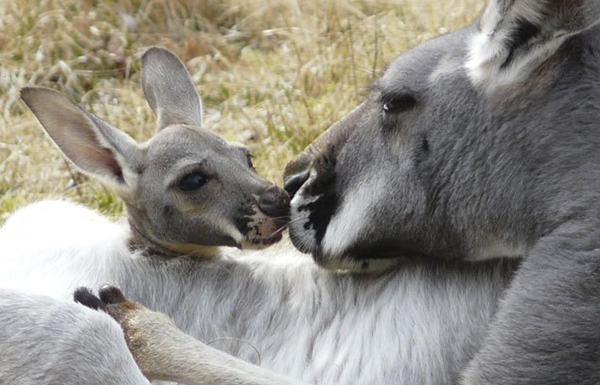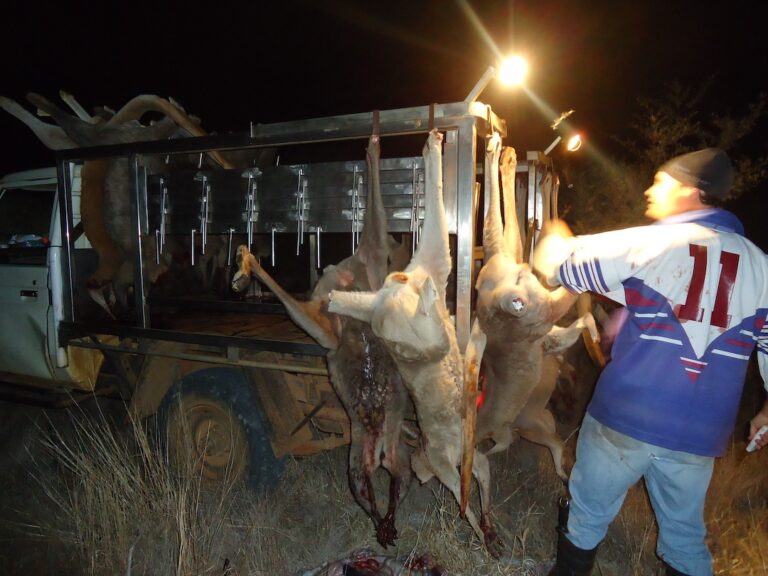
Kangaroos: California Retailers Flout Law, But We Are Catching Them and Calling for Federal Protections
By Kate Schultz
Senior Attorney, Animal Wellness Action
The commercial kangaroo industry in Australia is the largest commercial slaughter of land-based wild animals in the world
The Australian government says that the industry is regulated, but real enforcement of humane killing practices is sparse, and compliance reviews have more to do with checking the completion of paperwork than real-time monitoring in the field.
Kangaroo hunting is done under the cover of darkness and in remote rural areas where killing is unmonitored, making accountability impossible.
What’s more, these “humane” slaughter guidelines affirmatively recommend barbaric practices, such as blunt trauma to the heads of joeys. In other words, when mothers are killed, their babies are often dispatched by violently bashing in their skulls.

The Australian government does not keep track of how many ‘waste joeys’ are killed, but one estimate suggests the numbers to be between 400,000-500,000 a year. Or, if they escape by fleeing, remain behind without their mother and slowly succumb to exposure, starvation, or predation.
The biggest economic driver (estimated at 70% of total skins) behind the slaughter of kangaroos is to produce kangaroo leather (or “k-leather”).
Kangaroo leather is used frequently in the manufacture of high-end soccer cleats, like those sold for up to hundreds of dollars by Nike, Adidas, and Puma. In one of the largest markets in the United States for soccer cleats, California, the sale of products containing kangaroo parts is a crime. Yet enforcement of this prohibition is lagging. Our ongoing investigations have found a number of outlets where consumers waltz into local sports shops and purchase these prohibited products with ease.
One by one, we are compelling companies to comply and taking a range of actions to address those who disregard the law. We’ll have major announcements on this front soon.
For the past couple years, as part of their “Kangaroos Are Not Shoes” campaign, Animal Wellness Action and the Center for a Humane Economy have promoted effective enforcement of this law. One by one, we are compelling companies to comply and taking a range of actions to address those who disregard the law. We’ll have major announcements on this front soon.
We’re also working to make the California policy a national one. In Congress, lawmakers from both parties have introduced the Kangaroo Protection Act into Congress (H.R. 917) to bar any sale of kangaroo skins or other parts of the animal for any commercial purpose. Learn more at www.KangaroosAreNotShoes.org
Other NLEC News

The Australian government says that the industry is regulated, but real enforcement of humane killing practices is sparse, and compliance reviews have more to do with checking the completion of paperwork than real-time monitoring in the field.